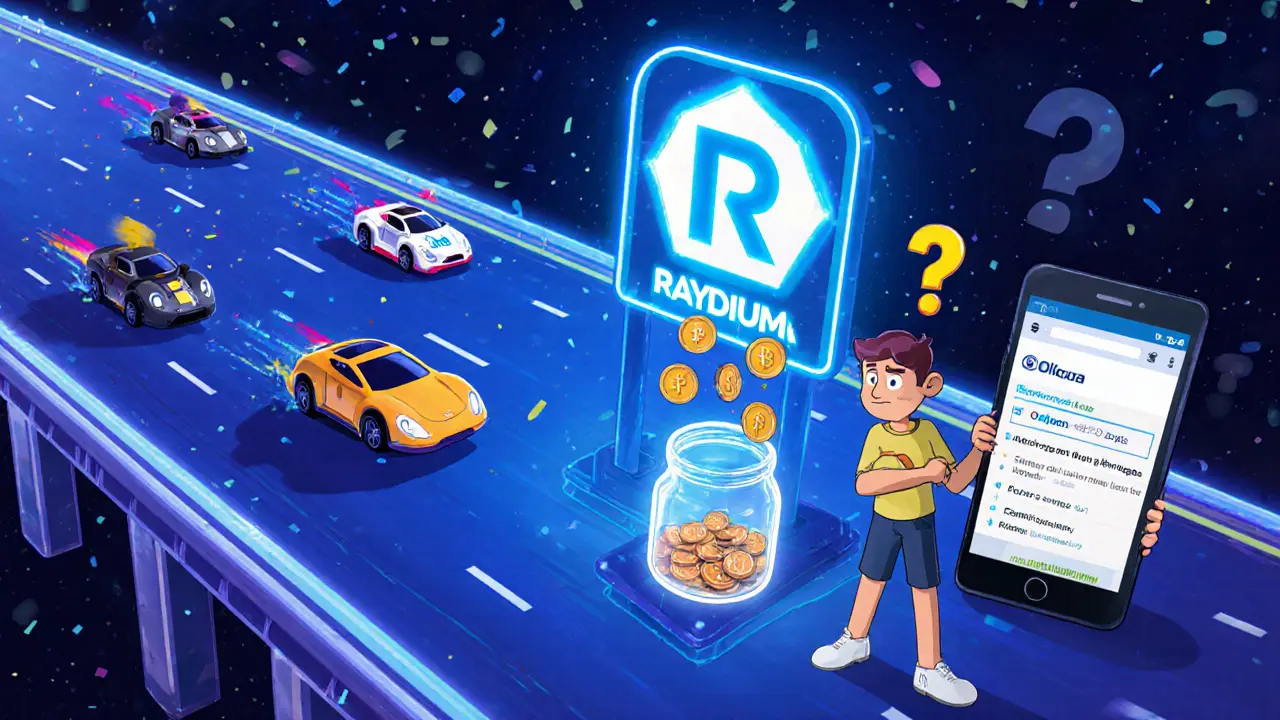Raydium Exchange: What It Is, How It Works, and Where It Fits in Solana DeFi
When you trade crypto on Solana, you’re likely using a Raydium exchange, a decentralized exchange built natively on the Solana blockchain that combines automated market making with on-chain order books. Also known as Raydium DEX, it’s one of the most active trading platforms on Solana, handling billions in daily volume without relying on centralized intermediaries. Unlike older DEXs that only use liquidity pools, Raydium mixes both AMM and order book models—giving you tighter spreads and faster fills, especially for popular tokens like SOL, USDC, and meme coins.
Raydium doesn’t just let you swap tokens. It’s also a hub for liquidity pools, customizable pools where users lock up pairs of tokens to earn trading fees and rewards. Also known as yield farms, these pools let you stake your crypto to earn extra tokens, often with annual returns that beat traditional savings accounts. Many users pair Raydium with Solana’s native wallet, Phantom, to manage positions without exposing keys to third parties. The platform also integrates with Serum, Solana’s centralized limit order book, making trades more efficient and reducing slippage. This is why Raydium is often the go-to for traders who want speed and low fees—especially when compared to slower chains like Ethereum.
It’s not just about trading. Raydium’s ecosystem includes IDOs, initial DEX offerings where new Solana projects launch their tokens directly to the public. Also known as token sales, these events let early adopters get in on projects before they hit bigger exchanges like MEXC or Binance. You’ll find posts here covering how to join these sales safely, how to spot rug pulls disguised as hype, and how to track real volume versus fake trading activity. Some users even use Raydium to farm new tokens before they list on centralized platforms—making it a critical tool for anyone serious about Solana DeFi.
What you’ll find in this collection are real, no-fluff reviews and breakdowns of Raydium’s features, its tokenomics, how it stacks up against other Solana DEXs like Orca and Jupiter, and the risks that come with using it. You’ll see how liquidity mining works in practice, what happens when a token gets dumped, and why some users walk away with profits while others lose everything. There’s no guesswork here—just clear, practical insights from people who’ve used it, tested it, and lived the ups and downs.
Raydium Crypto Exchange Review: Is This Solana DEX Worth Using in 2025?
Raydium is a fast, low-fee Solana-based DEX with deep liquidity but a rough user experience. Find out if it's worth using in 2025, who should avoid it, and how it compares to alternatives like Orca and Uniswap.
- 23
- Read More
